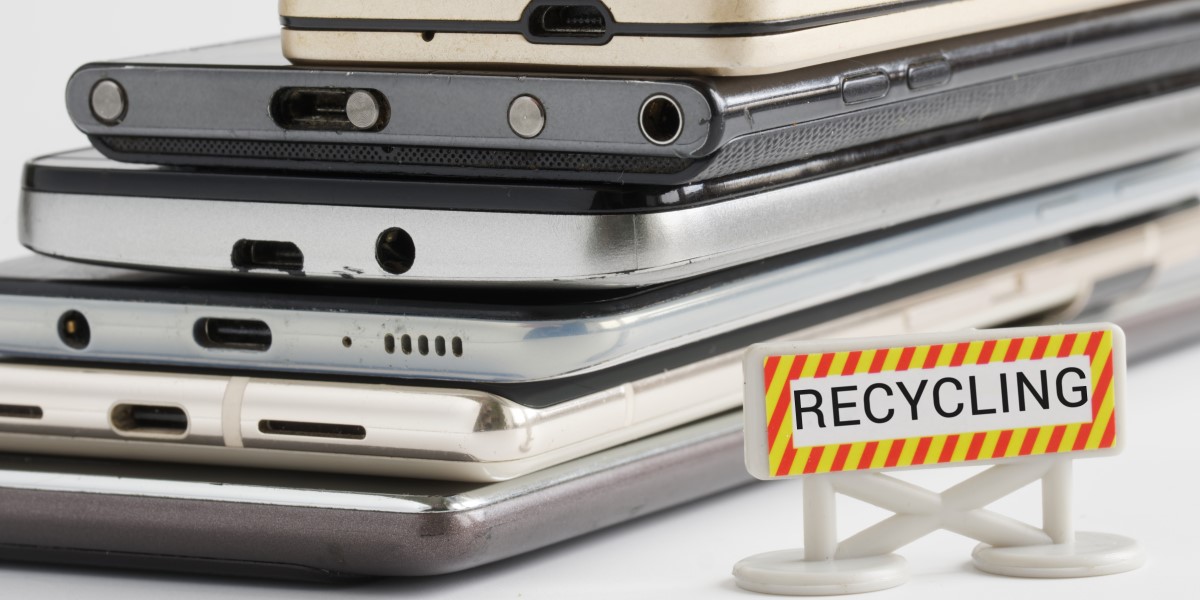Five Billion Phones Are Dead In Drawers – Carriers Want To Mine Them

The GSM Association (GSMA) and a dozen carriers have announced a plan to make a modest dent in the number of mobile phones that languish, unused, unloved, and unrecycled.
The consortium proclaimed on Tuesday that five billion mobile phones are "currently sitting unused and unloved in desk drawers around the globe" and asserted that their innards contain 50,000 tonnes of copper, 500 tonnes of silver and 100 tonnes of gold. There's also enough cobalt to build batteries for ten million electric vehicles.
The GSMA points out that having all those phones lying around is jolly wasteful, given that hauling new metals out of the ground and refining them is a messy and energy-intensive business.
A plan has therefore been hatched to do two things about it:
- Increase take-back of mobile phones
By 2030, the number of used mobile devices collected through operator take-back schemes amounts to at least 20 percent of the number of new mobile devices distributed directly to customers. - Boost recovery of mobiles and prevent devices going to landfill or incineration
By 2030, 100 percent of used mobile devices collected through operator take-back schemes will be repaired, reused or transferred to controlled recycling organizations.
Which doesn't sound like it will make that big a dent in the mountain of unused phones. There's no mention of the first target being binding – or even measured. And of course a 20 percent target leaves plenty of dead devices out there.
The second goal also has outs – not least because transferring a device to a recycler is no guarantee it will be recycled.
- AWS joins the water positive gang, claims it will be there by 2030
- European Right to Repair resolution headed for vote
- Samsung investing $5b in efforts to be carbon neutral by 2050
- What are server makers really doing to and for the climate?
Another issue is that none of the carriers the GSMA said have signed up for the scheme – BT Group, Globe Telecom, GO Malta, Iliad, KDDI, NOS, Orange, Proximus, Safaricom, Singtel, Tele2 and Telefonica – represent colossal markets like China, India, Indonesia, or the USA.
The Register is also curious about the GSMA's "desk drawers" metric. Your correspondent's desk lacks a drawer and his dead mobes are scattered among a rather nice wicker picnic basket, a filing cabinet, and That Box Full Of Old Tech I Should Probably Have Thrown Out But Kept Just In Case.
Aside from those quibbles, hurrah – your next car could be an iPhone! ®
From Chip War To Cloud War: The Next Frontier In Global Tech Competition
The global chip war, characterized by intense competition among nations and corporations for supremacy in semiconductor ... Read more
The High Stakes Of Tech Regulation: Security Risks And Market Dynamics
The influence of tech giants in the global economy continues to grow, raising crucial questions about how to balance sec... Read more
The Tyranny Of Instagram Interiors: Why It's Time To Break Free From Algorithm-Driven Aesthetics
Instagram has become a dominant force in shaping interior design trends, offering a seemingly endless stream of inspirat... Read more
The Data Crunch In AI: Strategies For Sustainability
Exploring solutions to the imminent exhaustion of internet data for AI training.As the artificial intelligence (AI) indu... Read more
Google Abandons Four-Year Effort To Remove Cookies From Chrome Browser
After four years of dedicated effort, Google has decided to abandon its plan to remove third-party cookies from its Chro... Read more
LinkedIn Embraces AI And Gamification To Drive User Engagement And Revenue
In an effort to tackle slowing revenue growth and enhance user engagement, LinkedIn is turning to artificial intelligenc... Read more

